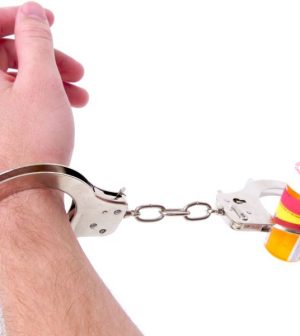- Could Your Grocery Store Meat Be Causing Recurring UTIs?
- Are You Making This Expensive Thermostat Error This Winter?
- Recognizing the Signs of Hypothyroidism
- 10 Strategies to Overcome Insomnia
- Could Artificial Sweeteners Be Aging the Brain Faster?
- Techniques for Soothing Your Nervous System
- Does the Water in Your House Smell Funny? Here’s Why
- Can a Daily Dose of Apple Cider Vinegar Actually Aid Weight Loss?
- 6 Health Beverages That Can Actually Spike Your Blood Sugar
- Treatment Options for Social Anxiety Disorder
Advice for Battling Opioid Addiction

As the United States continues to struggle with its unprecedented opioid crisis, an expert says all Americans need to take action to prevent addiction and help those in need.
There were an estimated 72,000 drug overdose deaths in the United States in 2017, according to the U.S. National Center for Health Statistics.
“One thing we can all do as individuals is recognize that anyone can help prevent addiction, even if we aren’t physicians,” said researcher Dr. Stefan Kertesz, a professor at the University of Alabama at Birmingham’s Division of Preventive Medicine.
Schools and social groups can offer skills-based programs for youth.
“These programs should provide youth with rewarding activities that offer recognition, support and fun,” Kertesz said in a university news release. “Scout leaders and coaches are, effectively, helping to prevent drug use, whether they know it or not.”
When offering opioid painkillers to patients, health care providers should have candid discussions with those who have a history of substance abuse, and should use caution with youngsters.
“You should demand conversations about those concerns, if your doctor or nurse doesn’t raise the topic,” Kertesz said.
Treatment must be made available to those with addiction and “must include the offer of evidence-based medications if those apply, as is the case for addictions involving opioids. Recovery takes many paths, and many [patients] need social, psychological and medical help in abundance,” Kertesz said.
“If your loved one uses substances, make clear how much it matters to you and why you need them not to,” he said. “Keep your boundaries clear, especially with regard to money, space and emotional bandwidth.”
Kertesz noted that some people believe that caring for a person means “giving everything I have,” but when that proves impossible, they give up entirely.
“When the people you care about are having addiction problems, staying engaged with them for the long run depends on being clear that you will not give up your sanity, your family’s well-being or your financial security,” he said. “You can’t help anyone if you feel as though you are about to crack in two.”
Even if someone with opioid addiction is in recovery and doing well, “it’s important to have the opioid reversal agent naloxone, just in case. Naloxone is a medication used to block the effects of opioids, especially in overdose,” Kertesz said.
More information
The American Academy of Family Physicians has more on opioid addiction.
Source: HealthDay
Copyright © 2026 HealthDay. All rights reserved.










